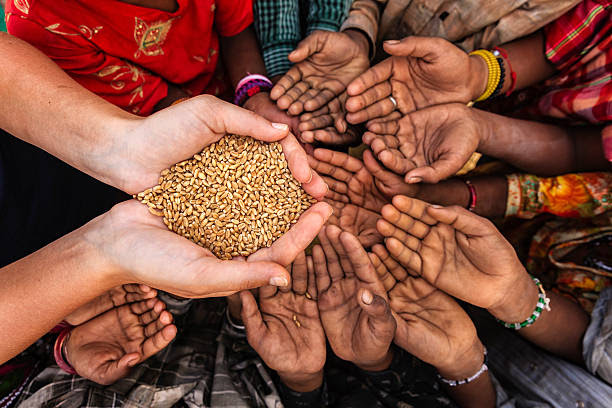World Hunger: Causes, Impact, and Solutions – Hunger is a persistent and pressing issue that affects millions of people around the world. Despite significant advancements in various fields, a substantial portion of the global population continues to struggle with inadequate access to nutritious food. Understanding the root causes of hunger and its far-reaching implications is crucial in finding sustainable solutions to this crisis.
Causes of Hunger
The main cause of hunger in the world is a combination of factors that contribute to food insecurity. Poverty is a leading driver, as people with limited financial resources often struggle to afford nutritious meals. Additionally, conflicts and political instability disrupt food production and distribution systems, leaving communities without access to essential resources. slot online
Climate change also plays a significant role, affecting agricultural productivity and exacerbating food scarcity. Natural disasters, such as droughts and floods, can devastate crops and livestock, leading to food shortages in affected regions. Furthermore, unequal distribution of resources and lack of access to education and healthcare further perpetuate the cycle of hunger.

Impact of World Hunger
World hunger has far-reaching consequences, impacting not only individuals and families but also communities and entire nations. Malnutrition resulting from inadequate access to nutritious food can lead to stunted growth, weakened immune systems, and developmental challenges, particularly in children. These effects can hinder cognitive and physical development, perpetuating the cycle of poverty.
Hunger also has economic implications, as malnourished individuals are less productive and have lower earning potential. Additionally, communities plagued by hunger may experience social unrest and instability, further exacerbating existing challenges.
Addressing the Global Hunger Crisis
Efforts to combat world hunger are multifaceted and require collaboration between governments, non-governmental organizations, and international entities. Some key strategies include:
- Promoting Agricultural Development: Enhancing agricultural productivity, sustainable farming practices, and access to resources can improve food production and security.
- Ensuring Food Access: Implementing social safety nets, food assistance programs, and policies that prioritize vulnerable populations can help alleviate immediate hunger.
- Empowering Women: Providing women with education, resources, and equal opportunities can enhance their ability to contribute to food security and economic stability.
- Conflict Resolution: Addressing conflicts and promoting peace can prevent disruptions to food production and distribution systems.
- Climate Resilience: Investing in climate-resilient agriculture and disaster preparedness can mitigate the impact of climate-related disruptions on food supply.
Conclusion: Striving for a Hunger-Free World
The issue of hunger in the world is a complex and urgent challenge that requires a concerted global effort. By addressing the root causes of hunger, promoting sustainable development, and prioritizing the needs of vulnerable populations, we can work towards creating a world where everyone has access to nutritious food and the opportunity to thrive.